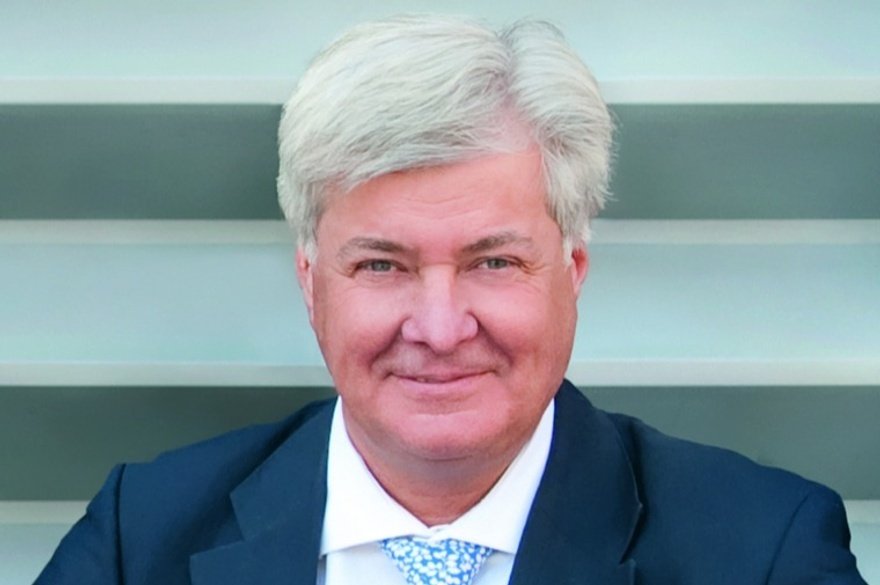Hospitality industry ‘shocked and saddened' by short-sighted immigration proposals
Hospitality operators have said they are "shocked and saddened" by short-sighted immigration proposals that have no provision for workers the government deems to be ‘low-skilled'.
As the Brexit transition period comes to an end in less than 11 months, operators and prospective employees will face a series of hurdles to appointing staff from outside the UK in what has been described as "another hammer blow" to the UK's third largest sector.
Prospective workers will need a job offer from a sponsored employer with a minimum salary of £25,600 – although there is a suggestion this could drop to £20,480 in industries with staff shortages if other conditions are met – as well as meeting a minimum English language standard.
Even if these requirements are met, potential employees will need to tot up 70 points in a system that prioritises high salaries and qualifications, with the Home Office estimating that 70% of the UK's current EU workforce would not meet the new requirements.
The industry has been swift to respond today, fearing well-publicised staffing difficulties are about to get worse:
Jeremy Goring, chief executive of the Goring hotel in Belgravia, said: "The extraordinary skill and knowledge held by migrant hospitality workers over the years have been the making of the UK restaurant scene, and the single biggest factor dragging us up from the laughing stock we were between around 1970 and 1990 to the world-class reputation the UK has today. The massive economic benefits this brings to everybody in the UK (£140b contribution to GDP) are well known.
"Any restriction on movement of people is a backward-looking step, which can only be an ingredient of long-term decline. Defining skills simply by salary seems a bit dumb, and insulting to many; as is the populist-sounding claim that immigration is about cheap labour. Migrants have taught British people to be great waiters, chefs and managers. How else did we progress beyond the prawn cocktail and the spam fritter?"
Corbin & King managing director, Zuleika Fennell, said: "We were shocked and saddened by the news, which seems particularly short-sighted after Brexit and causes yet another unnecessary obstacle to engaging and harnessing the huge talent we have always enjoyed from Europe and which has helped us to shape and grow our businesses, alongside our UK workforce. Worse still, we feel that the immigration restrictions continue to endorse the widely held misconception about the hospitality industry (the UK's third largest private sector employer) being low skilled, poorly paid and not capable of attracting the brightest and best, something which Corbin & King has always challenged and refuted."
Wendy Bartlett, founder of Bartlett Mitchell, said: "The industry has put a great deal of energy into making sure it is seen in a better light, and recent comments suggesting some roles are menial and low skilled do nothing to help an industry that is the backbone of this country and has given many people great opportunities and careers.
"The policy is short-sighted with regard to the economic impact and demonstrates the government's lack of understanding of the industry. Its our job now to support UKHospitality in getting that view changed."
Robin Sheppard, chairman of Bespoke Hotels, said: "Suicide is dangerous and that is what a ban on low-skilled migrant workers means we are committing. Speaking personally, and not on behalf of my company or the Institute of Hospitality, I am appalled that this bonkers piece of contemptible legislation will immediately break down our hospitality industry. Quite simply we can't fill all our positions. So now the new world will comprise self-service everything, from make your own bed, to take your own towels. I am a very ‘disgruntled from Tunbridge Wells'."
Bryan Webb, head chef of Tyddyn Llan, said: "We have run a restaurant with rooms for the past 18 years in rural Wales. In all those years no local person has had interest working as a waiter or kitchen porter and we struggle to get housekeepers without people from the EU. So, what happens after January next year?"
Will Beckett, co-founder of Hawksmoor, said: "As a result of turning off the tap, some businesses are going to close; they will fail to adapt to that new reality and staff shortages will get worse. The operating environment for restaurants is so difficult at the moment and I think a lot of places will struggle to get it right."
Tim Martin, founder of JD Wetherspoon, said: "I'm in favour of relaxed rules for EU citizens based on proximity or history, as for Irish citizens (which pre-dates the EU). I would prefer at least temporary visas for hospitality workers, as when UK citizens go to Australia, provided the incoming EU candidates have a job. I think no visas is too draconian."
Tim Foster, founder of Yummy Pub Co, said: "It's madness – I just don't see how this policy is going to benefit the country. We're incredibly proud of taking people without skills but with great attitude and developing them and nurturing them to be future hospitality leaders. It's what we've built the entire ethos of our business on.
"By denying EU citizens access to that, it's going to take the diversity out of our workforce – they bring incredible colour and fun into the business. It's just an incredibly poorly thought policy and I don't see how it benefits the country."
Tim Kemp, founder and chairman of Firmdale Hotels, said: "The hospitality industry does not have any barriers for employment and accommodates people from all over the world. The reality is that whilst we employ a large number of UK workers, there are many operational roles where no UK applications are received.
"Many employers invest heavily in upskilling and developing their employees, creating a great place to work and opportunities for progression that would not be available in other industries. I believe the government's white paper, focusing on what a skilled worker looks like, based around salary criteria and education level, is completely out of touch with what our industry represents, one that contributes to the economy as the UK's third largest industry and second largest employer."
Harry Murray, chairman of Lucknam Park hotel in Wiltshire, said: "The government's new policy on EU migrants will have a very serious impact on the vibrant UK hospitality industry. Hospitality is our third largest industry and there are 800,000 vacancies across the UK. Kate Nicholls, CEO at UKHospitality, has worked tirelessly during the past year explaining to government ministers the need to keep the door open for migrants who may not be fully skilled. This is not about cheap labour, it's not having sufficient labour available. Tourism is growing at an enormous pace and during the past decade the UK economy has benefited from this growth.
"As an industry we are fully aware we need to move away from the reliance on migrants, but this will take time, and cutting off the supply will have serious consequences to the UK economy. I have said many times that Brexit was indeed a wake-up call for the UK hospitality industry, but in fairness no effort has been spared since the referendum to change the image of hospitality. All the hospitality training bodies, including those offering apprenticeships, are presenting structured career opportunities. They are also making every effort to convince parents, teachers and career advisors that hospitality is a career of choice, offering excellent opportunities for young people. Operators are working hard at retention and are engaging with their staff and investing more in training and development."
Massimo Montone, managing director Restaurant Keys consultancy, said: "For hospitality companies, it would be great to start to recruit now for 2021 by investing in a campaign to target all European catering and hotel schools and engage with as many new recruits as possible.
"If we don't do this, businesses may be forced to close down due to lack of staff, or worse, lack of skill within the staff, and as result, the consumer will suffer and ultimately the business will be forced to close down anyway.
"I firmly believe that unlocking the potential of people is how to build a successful business, as people sit at the heart of the hospitality industry and not machines or any technology. It's a people business, all related as feeling and emotions."
Tevin Tobun, CEO of GV Group, said: "We cannot deny that the proposals are going to have a major impact across the hospitality sector but, in order to truly begin to tackle this, we need to be looking closer at how we can make the industry more attractive to the UK talent pool.
"A lot has been said since the announcement about how salaries and wages need to improve to help us survive but I think the issue is deeper than that. Industries like ours have long been seen as less desirable than others for reasons beyond money. We need to take this opportunity to reset and revisit our own business behaviours to help determine how we can create a more sustainable workforce."
Ed Fitzpatrick, general manager of the Homewood hotel in Bath, said: "We are very disappointed with the outcome and find it borderline offensive to not categorise lower level hospitality roles as skilled. We feel this will limit growth in provincial communities and only enhance the consensus that hospitality is a stop gap job and not a career, which is very disappointing.
"We will now up our efforts to embed apprenticeship schemes into our businesses and focus on lower-touch business models as it would seem the government in one motion has jeopardised the pipeline of staff to look after our guests are create unique experiences."
Feature image credit: Shutterstock
Immigration policy a 'hammer blow' that will see hospitality businesses close>>
Continue reading
You need to be a premium member to view this. Subscribe from just 99p per week.
Already subscribed? Log In














